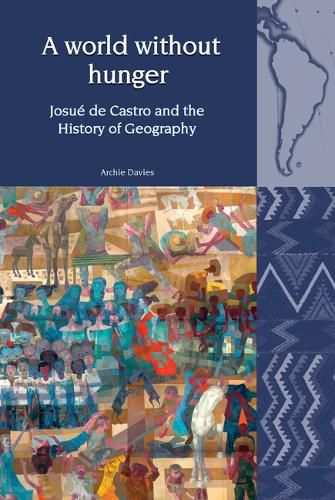Readings Newsletter
Become a Readings Member to make your shopping experience even easier.
Sign in or sign up for free!
You’re not far away from qualifying for FREE standard shipping within Australia
You’ve qualified for FREE standard shipping within Australia
The cart is loading…






Drawing on the rich personal archive of the geographer Josue de Castro, this book tells a new history of geography by following one of the twentieth century’s most influential and creative Brazilian intellectuals from the estuarine city of Recife to the halls of the UN, the chambers of Brasilia, and exile amid the political fervour of the universities of Paris in 1968. This is the first English language book on the absorbing life of Josue de Castro. It follows modern anticolonial geographical thought in formation, re-reading Castro’s metabolic, humanist geography as the anchor of a utopian practice of freedom: the demand for a world without hunger. Starting from Castro’s life and work, the book offers new takes on the history of nutrition, translation in geography, Brazilian modernist art and practice in post-war internationalism, the radical geographical intellectual, the problem of the region in the Brazilian Northeast, and the birth of political ecology and critical environmental thought. At once a biographical intellectual history and a work of geographical theory, this innovative book tells the story of 20th century geography from a new angle and in new company.
$9.00 standard shipping within Australia
FREE standard shipping within Australia for orders over $100.00
Express & International shipping calculated at checkout
Drawing on the rich personal archive of the geographer Josue de Castro, this book tells a new history of geography by following one of the twentieth century’s most influential and creative Brazilian intellectuals from the estuarine city of Recife to the halls of the UN, the chambers of Brasilia, and exile amid the political fervour of the universities of Paris in 1968. This is the first English language book on the absorbing life of Josue de Castro. It follows modern anticolonial geographical thought in formation, re-reading Castro’s metabolic, humanist geography as the anchor of a utopian practice of freedom: the demand for a world without hunger. Starting from Castro’s life and work, the book offers new takes on the history of nutrition, translation in geography, Brazilian modernist art and practice in post-war internationalism, the radical geographical intellectual, the problem of the region in the Brazilian Northeast, and the birth of political ecology and critical environmental thought. At once a biographical intellectual history and a work of geographical theory, this innovative book tells the story of 20th century geography from a new angle and in new company.